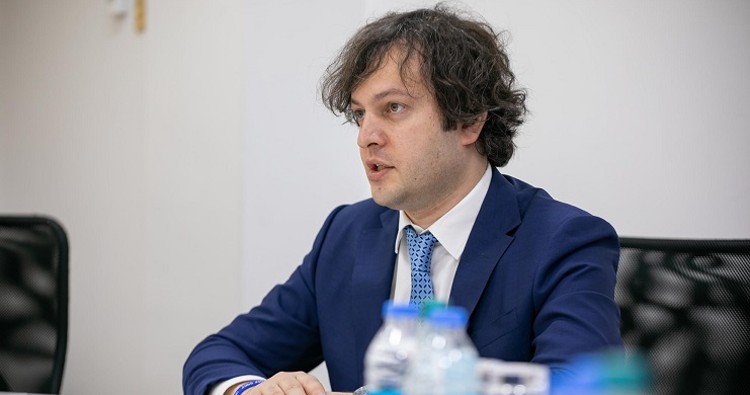Depolarisation depends on opposition’s willingness to move in that direction - ruling party head

He also criticised the country’s President, who in her briefing yesterday called on the Government to “immediately” convene a Security Council meeting following the event in Russia, and the opposition leaders, who in their statements “directly talked about going in [Georgia’s Russian-occupied] Abkhazia and Tskhinvali (South Ossetia) regions”, stressing this “confirmed” that the goal of the part of the opposition was to open the “second front” in Georgia amid the war in Ukraine. Photo via Irakli Kobakhidze/Facebook
Irakli Kobakhidze, the head of the ruling Georgian Dream party, on Sunday said the fulfilment of one of the priorities outlined by the European Union for granting Georgia its membership candidate status - depolarisation - depended on the domestic opposition’s “willingness to take steps for deradicalisation”.
In his comments to the media, Kobakhidze claimed the country’s opposition did not want Georgia to receive the candidate status and said the opposition parties “were stirring up polarisation” for their “own interests”, citing the fact of the pardoning of Nika Gvaramia, the head of the domestic Mtavari Arkhi TV channel, by President Salome Zourabichvili to strengthen polarisation.
He also criticised the country’s President, who in her briefing yesterday called on the Government to “immediately” convene a Security Council meeting following the event in Russia, and the opposition leaders, who in their statements “directly talked about going in [Georgia’s Russian-occupied] Abkhazia and Tskhinvali (South Ossetia) regions”, stressing this “confirmed” that the goal of the part of the opposition was to open the “second front” in Georgia amid the war in Ukraine.
Yevgeny Prigozhin, the leader of the Wagner Group, a Russian paramilitary organisation, marched his troops in Russia’s several cities on Saturday, claiming his group had seized "all military facilities" in the southern city of Rostov-on-Don and pledged to “move on to Moscow”, as the international media reported.
Later on Saturday his troops, heading towards Russia’s capital, pulled back, after Prigozhin said the decision was made to “prevent bloodshed in Russia”.
 Tweet
Tweet  Share
Share